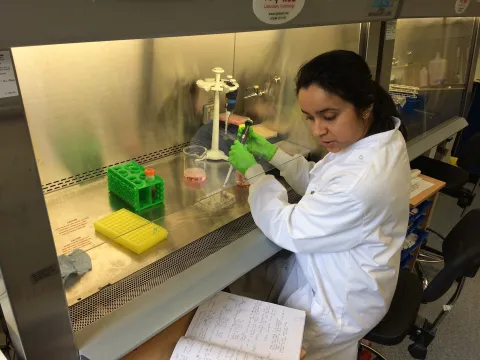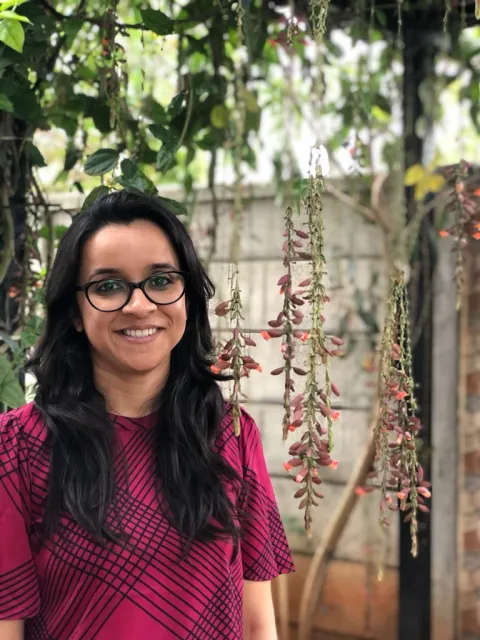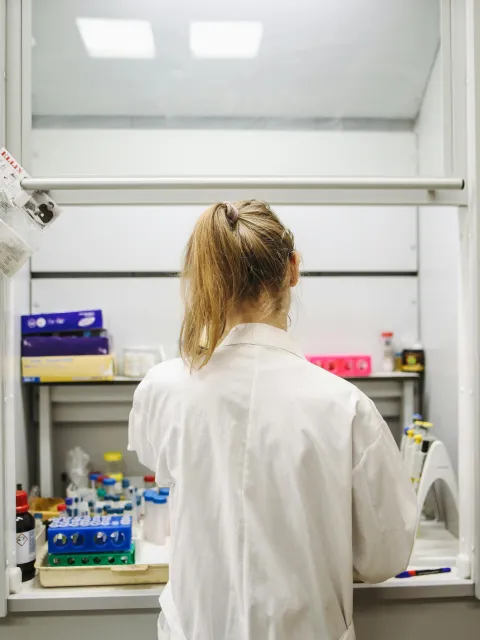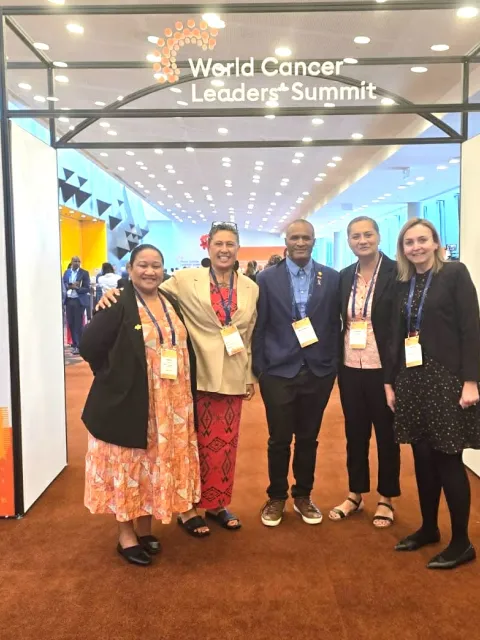“Don’t Stop Believin'”: A journey from the lab bench to improving access

I am not alone in believing that healthcare systems and healthcare-associated organisations have a profound impact not only on the lives of patients, but also on the community as a whole. From improving patient outcomes, and reducing cost of treatment to mitigating carbon footprint, healthcare stakeholders have a wide gamut of opportunities to enhance the experiences of people navigating these complex systems.
It was during my PhD in Cancer Biology at the Vanderbilt University Medical Center that I first began to appreciate nuances of local cultural values when considering healthcare issues ranging, from ethical consent for clinical trials to ways of implementing programmes for cancer awareness.
After returning to India, I joined Tata Translational Cancer Research Center (TTCRC), Tata Medical Center, as an early career cancer researcher. I became acutely aware of the hardships that socio-economically impoverished families face when their loved ones are being treated for cancer.
Aiming to improve cancer care for underserved communities, the Director (TTCRC) and my supervisor, Professor Vaskar Saha would keep asking us: “What strategies can be used to target processes involved in drug resistance, so that no child suffers from a relapse of the disease due to a lack of access to novel cancer care medicines?” We were building TTCRC labs at that time and answering this question seemed quite difficult. I decided to take an alternative approach: I searched for fellowships that provide opportunities for technology transfer.
You had to see my face to believe how excited I felt when I came across UICC’s Yamagiwa-Yoshida Memorial International Cancer (YY) Study Grants. Hoping to learn how to use flow cytometry to analyse cells and high content imaging systems in understanding drug resistance in children with acute lymphoblastic leukaemia (ALL), I proposed a scientific visit to the University of Manchester for a technology transfer training.
A successful grant application led to my three-month visit to the Childrens Cancer Group labs, generously funded by the UICC-YY Study Grant. Inspired by all that I had learnt and imbibed, thanks to the privilege of being a UICC fellow, I focused my efforts on helping set up TTCRC labs in India and began investigating how to use readily available and affordable drugs to overcome drug resistance in children with ALL.
Access and affordability of novel cancer care treatments are the two biggest challenges that plague cancer patients and their families in India. So for the next five years, through experimental research, I persevered to give back to the cancer community what I’d achieved through the UICC-YY Study Grant and a successful India Alliance Early Career Fellowship. On a personal front, I witnessed how families of cancer patients struggled to arrange for blood transfusion products, especially single donor-derived platelets. I became a platelet donor and a legally registered bone marrow stem cell donor with DKMS, India.
It is the dream of early career scientists to pursue scientific curiosity, with the support of funding agencies such as UICC and India Alliance. However, one of my greatest aspirations is creating impact in the lives of underserved communities. This realisation dawned on me when I saw our patients at Tata Medical Center lose access to life-saving medicines as a result of supply-chain disruptions during the COVID-19 pandemic. Choosing to step out of the lab and enter the world of improving access to quality-assured, affordable medicines, I joined Biocon Biologics Limited. Here, with the support of some amazing teams, I drive social projects that aim to address healthcare access inequity, build the capacity of healthcare professionals in emerging economies and support holistic management of non-communicable diseases such as cancer among underserved communities.
I strongly believe that to achieve the Sustainable Development Goals (SDGs) put forth by the United Nations, we have to act on the mandate of significantly improving access to quality healthcare, and that’s the primary reason why I have made cancer care equity my long-term priority.
Last update
Monday 25 September 2023Share this page


